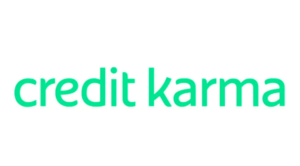 Keeping an eye on your credit score is important, whether or not you are planning to take out a new credit card or loan. Monitoring any ups and downs, then moving quickly to find a solution can stop bigger issues developing and unwanted surprises ruining an application. One way of looking after your credit score is by signing up to Credit Karma, a website that processes credit data from TransUnion. In this full, independent review of Credit Karma, we will break down its different features, explain the pros and cons and help you decide if it is a good option for tracking your credit score.
Keeping an eye on your credit score is important, whether or not you are planning to take out a new credit card or loan. Monitoring any ups and downs, then moving quickly to find a solution can stop bigger issues developing and unwanted surprises ruining an application. One way of looking after your credit score is by signing up to Credit Karma, a website that processes credit data from TransUnion. In this full, independent review of Credit Karma, we will break down its different features, explain the pros and cons and help you decide if it is a good option for tracking your credit score.
What is Credit Karma?
Established in 2007, Credit Karma provides a way for people to access their credit report for free. Unlike Experian, Equifax or TransUnion, it doesn't create the credit reports or calculate a credit score. Instead, it uses data given to it by TransUnion, which is updated weekly, and passes that on to users. In addition, it alerts people if their TransUnion credit score has changed because of new entries being added to their report, as well as suggesting ways to improve the overall score.
Credit Karma states it doesn't - and will never - sell users' data to third-party companies. However, it does work as a credit broker, presenting its customers with loans and credit card deals from a number of financial institutions and earning commission on sales of those products. From the consumers' point of view, Credit Karma is free and it can help identify credit products that they are likely to be accepted for based on their TransUnion credit report. However, it lacks some of the features offered by other credit-reference companies, particularly those with paid subscriptions.
Credit Karma key features
- Sends a free weekly credit report to users, based on data from TransUnion
- Suggests ways to improve TransUnion credit score
- Works as a broker, matching financial products from its panel of lenders to customers, based on the credit scores it has for them
- Provides a free eligibility checker to give a good indication of whether someone is likely to be approved for the credit products it markets
- Has an energy-switching service to help reduce energy bills
- Notifies users of any changes to their credit report
How does Credit Karma work?
In terms of providing credit reports, Credit Karma presents the information it sources from TransUnion, which is based on people's past financial behaviour, as well their current credit agreements. This is updated weekly and users can also receive notifications if their credit report or score with the agency changes. This is important as lenders use the information contained in credit reports from TransUnion, Equifax and Experian to decide whether to approve applications for products such as mortgages, loans or credit cards. If you have a poor credit rating, you are less likely to be approved, be offered a low interest rate or get a high credit limit.
The way Credit Karma makes money is by acting as a credit broker, working with a panel of lenders to match users' credit ratings with products they are likely to be accepted for. If people take out these products, Credit Karma earns commission. From a consumer's perspective, it can be useful to know how likely you are to be approved for credit before you apply for it as, if you are turned down, it can have a further negative effect on your credit score. With this in mind, Credit Karma has an eligibility checker, giving approval odds of between 10-95% to show you whether you are likely to be successful. There is also an indication of whether you have 100% approval odds, although this doesn't act as a guarantee. If you don't meet the lender's criteria outside of your credit rating - for example, if you already have a product with them - you may still be turned down.
Is Credit Karma accurate?
As Credit Karma sources its credit report data direct from TransUnion, it doesn't control the accuracy of the information it provides. However, while there may be errors in your report or out-of-date entries, Credit Karma does have a mechanism in place to resolve those types of issues. If you notice a mistake, it's a good idea to contact both Credit Karma and TransUnion to inform them as correcting it could help to improve your credit rating.
In general, it pays to check your reports with all three credit reference agencies - Experian, Equifax and TransUnion - so you have a full picture of your financial health. As they each have access to information from different lenders and other official sources, there may be discrepancies across all three and, unless you are aware and can correct the errors, you will be at greater risk of unexpectedly being turned down for credit in the future.
Is Credit Karma free?
Credit Karma makes the commitment to its users that it will always be free. When you sign up, you don't have to provide credit or debit card details, which gives peace of mind that you won't face an unexpected charge. Alongside ClearScore, MSM Credit Monitor and Totally Money, it is one of the only ways to access your credit score and report with one of the credit reference agencies for free, other than with a free trial period offer.
Credit Karma cost comparison
| Monthly cost | Extra information | |
| Credit Karma | Free | Credit score/report from TransUnion |
| ClearScore | Free | Credit score/report from Equifax |
| MSM Credit Monitor | Free | Credit score/report from TransUnion |
| TotallyMoney | Free | Credit score/report from TransUnion |
| checkmyfile | £14.99 (free 30-day trial) | Credit score/report from all credit reference agencies |
| Experian | £14.99 (free 30-day trial) | £10.99 for Identity Plus |
| Equifax | £10.95 (free 30-day trial) | N/A |
Credit Karma customer reviews
On review site Trustpilot, Credit Karma has a score of 4.4 out of 5.0, based on over 7,000 reviews. This relatively good score is the result of 66% of respondents deeming the company to be "excellent" and 13% "great". The positive reviews cited good customer service and fast problem resolution, while the negative reviews focused on issues signing up, or frustration at loans and credit cards from Credit Karma's panel of lenders being marketed to them.
Credit Karma pros and cons
Pros of Credit Karma
- It's free to use and doesn't require you to provide your debit or credit card details to sign up
- It gives you an indication of how likely you are to be accepted for certain credit products, reducing the chances of you being turned down, which could have a detrimental effect on your credit file
- It includes an energy-switching service, which can help reduce your energy bills
Cons of Credit Karma
- It doesn't offer a distinct identity protection element in the same way as Experian and Equifax do
- It doesn't have a facility to let you improve your TransUnion credit score, while Experian has this through Experian Boost
- It is still necessary to check your reports with Experian and Equifax to make sure you have insight into any potential problems before applying for credit in the future
Should you sign up with Credit Karma?
Credit Karma is free, so there is little downside to signing up in order to check your TransUnion credit report. You will be able to see products that your credit file suggests are a good fit for your finances and check out tips to improve your TransUnion credit score. However, it you are only planning a one-off check of your credit score, there may be free trials on other services that give you more insight and access to other credit unions beyond TransUnion.
Alternatives to Credit Karma
If you are willing to pay to see your credit reports, checkmyfile gives you unlimited access to Experian, Equifax and TransUnion for £14.99 per month, with a free 30-day trial. This is an efficient way to keep on top of your report from all three of the main credit reference agencies, alongside Crediva, which looks at alternative credit referencing, including court reports. It saves the leg work of having to check each report separately.
If, however, you want to check your credit score and reports for free, companies such as ClearScore, MSM Credit Monitor, TotallyMoney and MSE Credit Club allow you to do so with each of the credit reference agencies. You could also check out the simple tips in our article 'How to improve your credit score quickly'.






